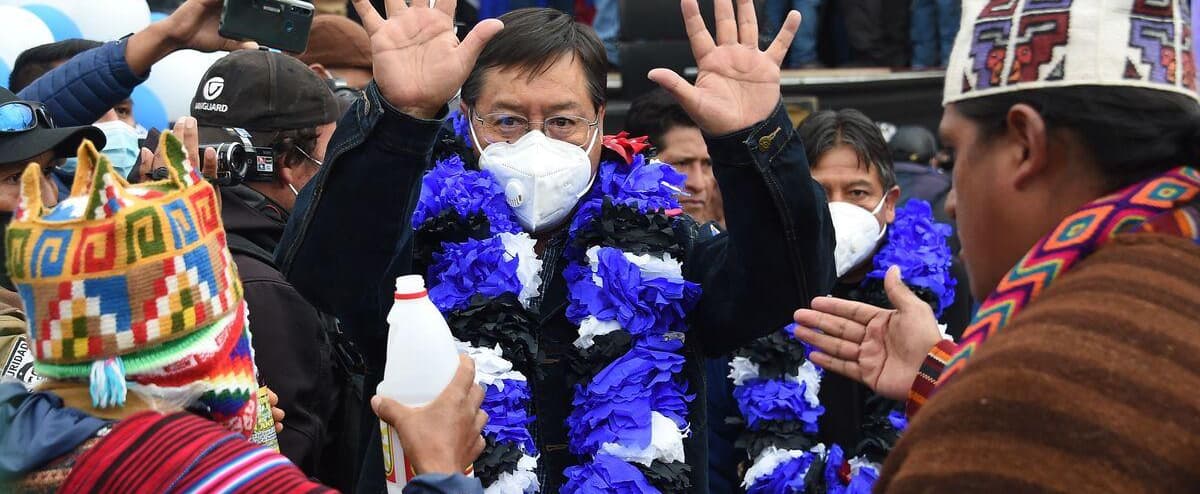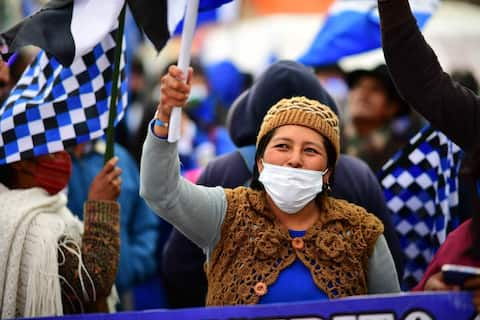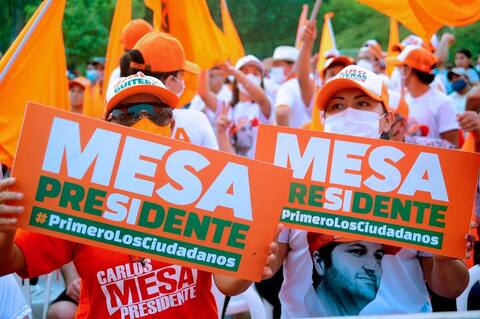Bolivians will vote on Sunday to elect their new president in a context of economic crisis, the most serious in nearly 40 years, due to the health situation and the fall in commodity prices.
In this country of 11 million inhabitants, the coronavirus pandemic, which has affected 137,000 people and killed more than 8,000, has accentuated the weaknesses of the economy.
The Gross Domestic Product (GDP) is expected to decline by 6.2% in 2020, according to forecasts by the International Monetary Fund, against an increase of 2.2% in 2019. At the same time, the urban unemployment rate has fallen from 6.6% at 10.5% between January and August, according to official figures.
“We are very close to a serious economic crisis,” said economist Roberto Laserna, from the think tank Fundacion Milenio.
According to him, the health crisis has highlighted the structural shortcomings of the Bolivian economy: growth that has slowed since 2014, an increase in the public deficit, a growing trade imbalance and debt, as well as a continuous decline in international reserves.
The latter thus increased from 8.9 billion dollars at the end of 2018 to 6.2 billion in June 2020.
This gradual deterioration, to which are added the consequences of the pandemic and political uncertainty, led the Moody’s agency to lower the country’s debt rating from B1 to B2.
It is in this context that the Bolivians will choose their new president, probably during a second round on November 29 between the socialist candidate, Luis Arce, dolphin of Evo Morales (2006-2019), and the centrist Carlos Mesa, according to the projections of the latest polls.
Luis Arce, who was Minister of the Economy between 2006 and 2017, and again in 2019, under the presidency of the socialist Evo Morales, is at the initiative of an economic policy which for more than ten years has given priority to exploitation of natural resources.
Established in 2006, this policy was based in particular on the nationalization of the exploitation of hydrocarbons and minerals, and on redistribution programs, thus making it possible to improve the lives of many Bolivians and to finance infrastructure.
The Andean country has significant reserves of gas, lithium, iron and copper.
“Super cycle”
“This model is geared towards promoting consumption. A model compatible with a (super cycle) for raw materials, which allows the government to have more income, to increase public spending, so that people consume and the economy progresses, ”explains AFP Javier Aliaga, researcher at the Inesad Center for Economic Studies.
GDP growth thus reached its highest point in 2013 (+ 6.8%). This prosperous period has led to a reduction in poverty from 60% to 37%, and poverty has fallen from 38% to 13%, according to official figures.
But when commodity prices, which account for 80% of the country’s exports, began to plunge, Evo Morales’ government continued to pump money into the economy by drawing on international reserves and digging deeper into the economy. public debt, experts point out.
At the end of 2019, public debt reached an all-time high, at 11 billion dollars, or 27% of GDP, according to the Central Bank of Bolivia (BCB), a level however among the lowest in the region.
The plummeting oil and gas prices due to the pandemic have only made matters worse.
In addition, exchange controls with the dollar, decreed to moderate inflation, “reduced the possibilities of exporters to be competitive, which had consequences on the trade balance and a cost on international reserves” to support parity, estimates Javier Aliaga from AFP.
During his campaign, Luis Arce defended his record: “We have taken appropriate decisions that have led our country to be at the top of several economic and social indicators in the region. Bolivia must find the path of stability and economic growth in a context of social justice, ”he insisted.
Former President Carlos Mesa (2003-2005), for his part, announced that he wanted to strengthen the “diversification” of the economy. However, he ruled out again privatizing the public hydrocarbon company and its subsidiaries, proposing to “make them efficient”.
 Canada Live NEWS – 24/7 Breaking Headlines & Updates Canada Live News is one of the largest news curating sites across Canada which is made exclusively for Canadian people.
Canada Live NEWS – 24/7 Breaking Headlines & Updates Canada Live News is one of the largest news curating sites across Canada which is made exclusively for Canadian people.



